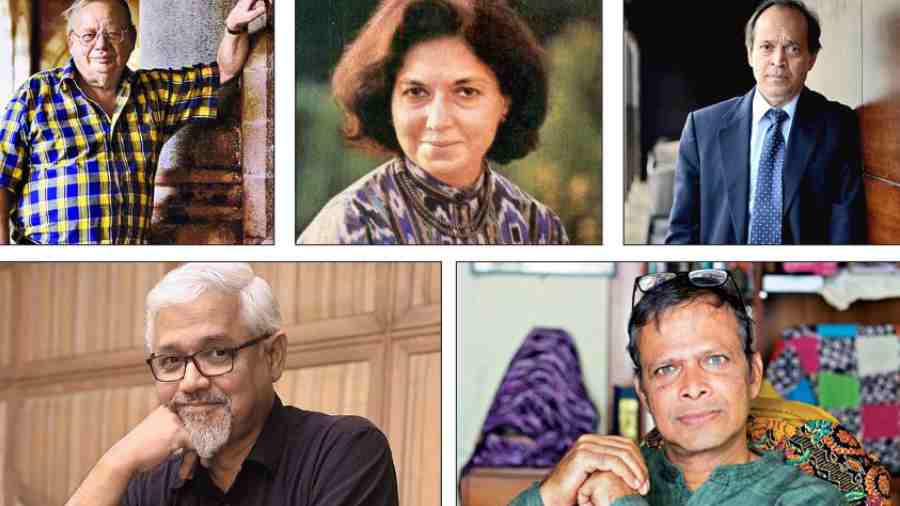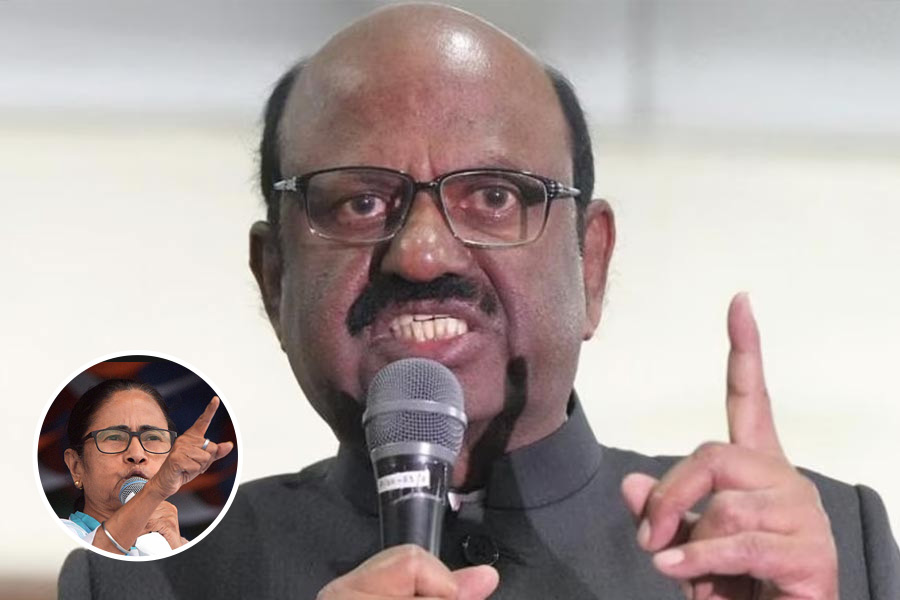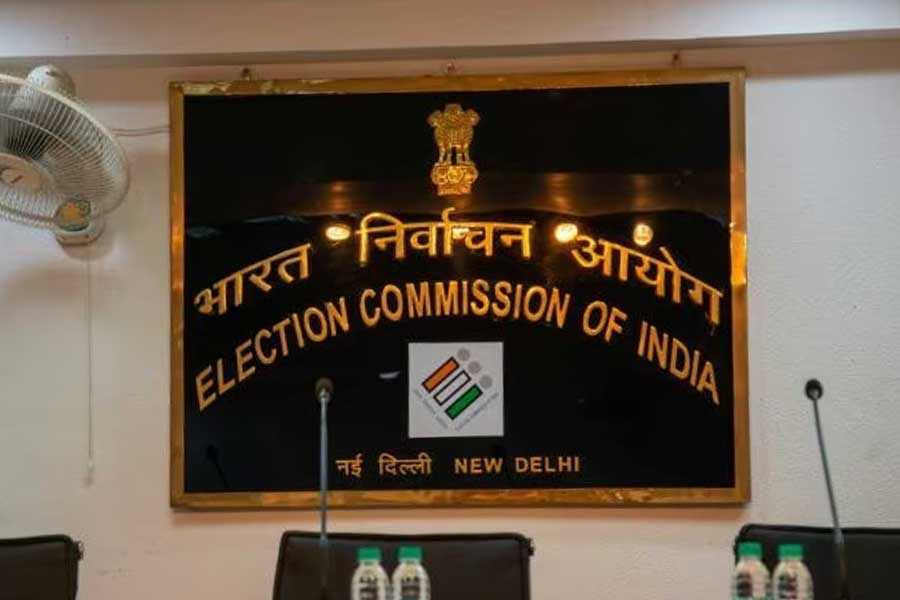Fiction? Whoever has time for it now?
When we can barely make time to get at facts, fiction stands little chance. And there is also this added complication (or, if you like, simplification): one gets so much fiction, pure make-believe in the guise of facts, that the real thing — literary work of the creative imagination — is not missed.
And, yet, when the other day I came across on my granddaughter’s shelf an attractive volume of Ruskin Bond’s short stories for children and took it down just to get a flavour of the man’s work, I knew I had been smitten. I could not put the book down, devouring story after story, every single one of them, and finding with each such ‘visit’ something I had missed earlier. For the time I was his captive, his world of the hills became my world, his characters in it, the population of my mindscape. Melaram the postman, who is devoured by a leopard, Professor Lulla, the retired pedagogue, with a morbid obsession with funerals, including of those he scarcely knows, and who is also surprised (and eaten) by another pair of sawed jaws, Dukhi the grim gardener, the father whose brief life is depicted with the simplest but most affecting strokes of the pen, the un-named stepfather who is portrayed without a single word of disfavour but who the reader cannot but hate with intensity become the most important people in my life during that captivity. The jungle streams where the little boy protagonist dives into for swims, the hillsides, the skies and the trees compose an ecology that no brush can paint, no camera can shoot.
His way with ghosts in his spooky tales is a gift. When a strange boy talking to the protagonist at night suddenly lets the light fall on his face which has no mouth, no nose, no eyes, you are with a ghost. The real thing. “Mr Bond, do you believe in ghosts?”, he was once asked by an interviewer. “I do not believe in ghosts,” he had replied. “But I see them all the time.” Spookier than that you cannot get! Bond is the soul of fiction, the heartbeat of suspense in storytelling.
Reading Ruskin Bond (b.1934) for the first time in my 77 years, I said to myself, ‘You are lucky, you fool, to be reading a fiction writer of the highest calibre who is right here, alive, at 88, and not in some attic of novelists long dead and gone into the mouldy shelves of antiquarian books in a library no one visits.’
And it occurred to me that in the world of Indian writers of English fiction, we have some truly great names of men and women who are with us, right here, in our times, our contemporaries. We must halloo them.
Too often, far too depressingly often, do we see obituaries that make us feel and say, ‘Ayyo, why did I not know her when she was alive!’ Far too often have I felt on reading a touching tribute to the just-dead person, ‘What a good man… Wish I had known of him when he was there with us, when I could have rung his doorbell and asked ‘Sir… May I come in… Only if I am not obtruding…?’
Let me just list a few such novelists, writers of stories, who are hayyat not marhum and may they stay that way, please God, for years and years more.
Nayantara Sahgal (b.1927) must head that list. I first heard of her when her memoir, Prison and Chocolate Cake (1954), made its appearance. I was nine, at school. The title gripped me, as did the book. It was her first book, followed about a decade later by another in the same genre, From Fear Set Free (1962). After that there was no looking back for this publicity-shy daughter of the legendary Vijaya Lakshmi Pandit. Novel followed novel, with the sequence being counted still, The Fate of Butterflies (2019) bringing up the rear. Nayantara writes in a unique rasa. You cannot call it sad, for it has so much humour in it and you cannot call it fun, for it has pathos — in a way the realisation of destiny would. It also disturbs you, makes you worry, makes you fear but in indignation, not weakness. Butterflies is not for the lily-livered.
Vikram Seth (b.1952) is about genius, sheer genius. There is no other description for this man’s oeuvre. He entrances like the Everest towers, or the Taj bewitches. I first read him outside fiction, in his travelogue, From Heaven Lake (1983), that took me into Sinkiang and Tibet in a way a physical journey would have but more: it took me there with him. And him being Vikram Seth. I had to read everything that was to come from his pen thereafter, poetry, biography, anthology but his three novels above all: The Golden Gate (1986), A Suitable Boy (1993), An Equal Music (1999). To read Vikram Seth is to experience the source of things as also their finis. There is something in his writing that reminds one of the brilliance of Pandit Ravi Shankar with the sitar. Need more be said?
Amitav Ghosh (b.1956) with his one dozen novels, each more riveting than the other, more intricately woven, more mind-boggling and soul-scorching, is a Samrat of fiction-writing. Reading The Shadow Lines (1988) made me a fan forever. Ghosh reminds me of the great sitarist, Ustad Vilayat Khan, whose mastery of that instrument was reflected in the way he walked — like an Emperor. He writes with the élan of one who is in control, in charge, enthroned.
If Em and the Big Hoom, published in 2012, was the only thing that Jerry Pinto (b. 1966) ever wrote, his place in the world of fiction would be assured. Other than this work I have read few things, whether in Indian or non-Indian writing in English, that are so moving, so deeply stirring of one’s within. Why am I saying ‘few things’? Why am I playing so stupidly ‘safe’? Have I not been moved to the depths by Em? Have I not the guts to say, ‘I have read nothing so moving’? The searing honesty of that work makes me chastise my own reticence and acknowledge the oceanic surge of this writer’s sensibility which, coming as it does with the gift of laughter, so as to say Pinto is the Pandit Kumar Gandharva of Indian writing in English.
Premchand’s, Bibhutibhushan’s, Kalki’s, Thakazhi’s and Mahadevi Verma’s India will, I do not doubt, produce fiction greater than that coming from its English pens. My selecting these five writers in English from our time is only to say how utterly grateful I am for my luck in being alive at the same time as the five out of many others that I have described. And to say, too, I lament the loss of R.K. Narayan, of Khushwant Singh, of Kamala Markandeya — all of whom wrote English fiction of world class without bothering about whether they did or did not. But I rejoice in the knowledge that I am alive at the same time as these five. And in times when fiction is increasingly to be got in what is presented as truth.










